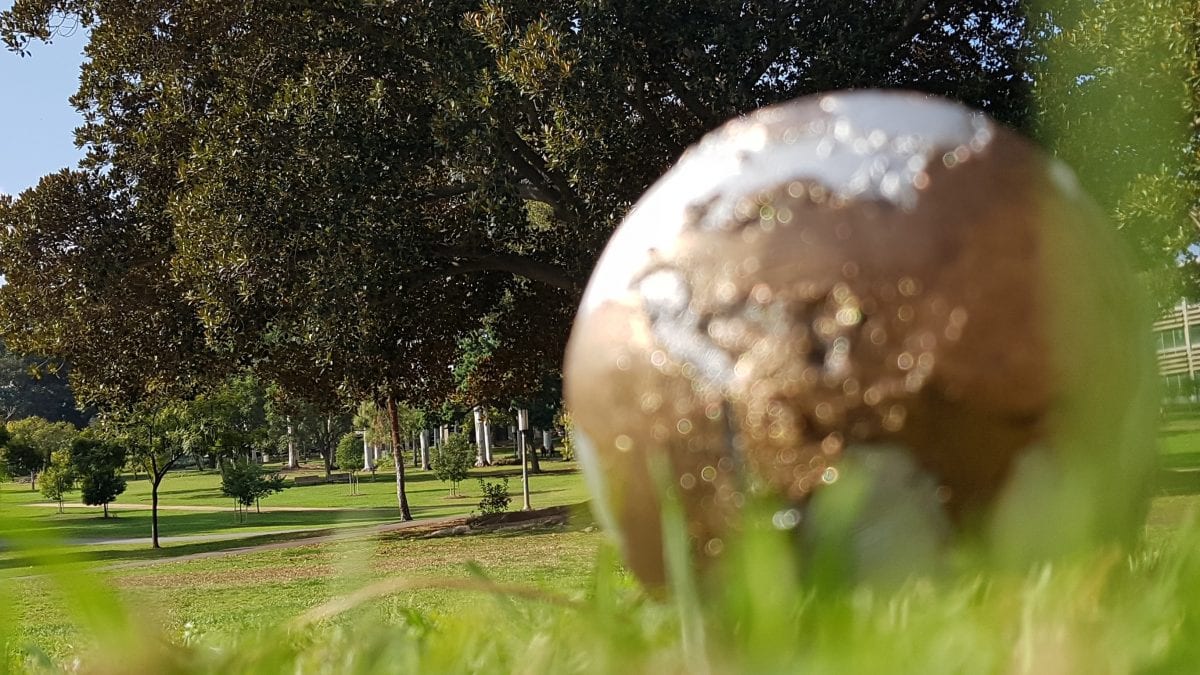- Did you receive a globe? Congratulations! Click Here for the Next Step!

The Story of Carry the EARTH
September 20, 2018Why we should make precious metals even more precious
I am very pleased to be the first person to carry globe 9 made by the artist Ronnie Siegel. The oceans on this globe are shimmering silver, the continents have a golden glow. This shine lets me think about the metals this globe is representing – precious metals. What makes those metals precious metals? Well, our economic mechanisms make things precious, if there is more demand than supply of such a good. There are several uses for these metals – since centuries for storage of value, investment and jewelry, and more recently as a crucial part of circuit boards for electronic products. Demand is high, but the amount supplied is limited – hence prices for these elements are high.
And that is not a bad thing itself. Expensive items make us think about what is really necessary and prevents us from consuming goods not essential (I do not own golden jewelry cause it’s pricey and wouldn’t match my outfit anyway). But also, a high price tag lets us strive for alternatives – for example considering the long list of elements which are fundamental components in electronics such as cell phones: gold, silver, copper, rhodium, platinum and palladium are only some of them. As these get more expensive, there will be more pressure to develop alternatives that don’t rely on precious metals to produce electronics cheaper than competitors.
The other side of the coin is that some people will use ruthless methods to get access to expensive elements. This can be observed both in mining and recycling of precious metals which is often performed in conditions hazardous for workers and the environment. But how to address this? Should you stop using your cell phone and laptop? It will be a hard task for you, but still not as hard as convincing other people of following your role-model behavior. But excluding ourselves from such technical amnesties is not only hard to achieve, nor is it essential or even helpful. The key is to have transparency on the origin the precious metals used in devices come from, and the willingness to stay away from sources of which unacceptable conditions. This will have two major consequences: there is no more incentive to mine under such conditions if the demand for metals from these sources collapses. In the second place, the market prices will increase, and this will increase the pressure to develop new goods using alternative components.
Hence, it is our responsibility as consumers to urge for transparency on the origin of everything that is part of the products we buy – and therefore also to urge for higher prices, even if it sounds paradox. In the long run, it is the consumers themselves benefiting from expedited development in technology.
My action from these thoughts is to research on the precious metals used in products of my daily use, and to consider the amount and even more important, the origin of these when it is necessary to replace one of those. I encourage everyone to do the same. Though we will to have pay higher prices for precious metals from sustainable sourcing, doing so will boost the development of alternative solutions which rely less on such materials.


